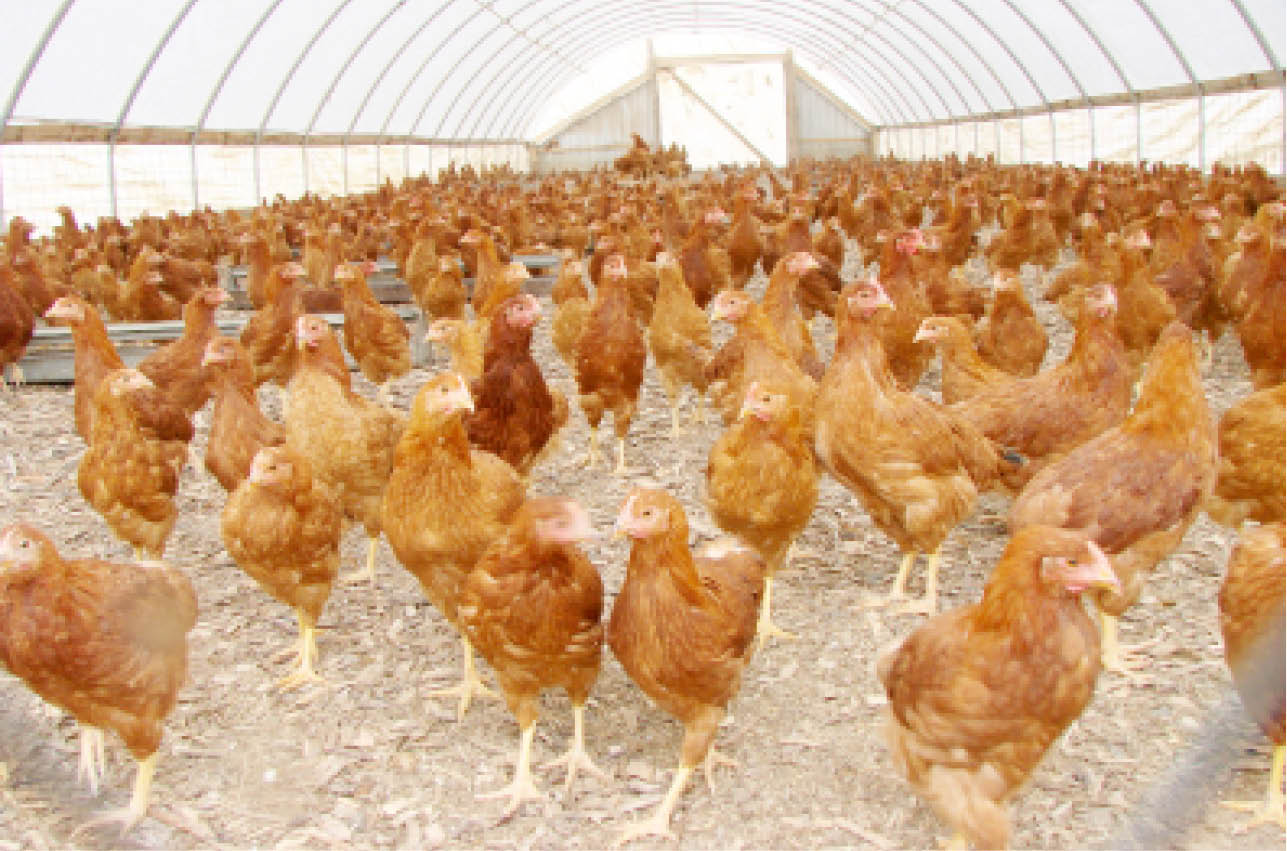Many poultry farmers are shutting down their businesses in Niger State, following the rising cost of feeds and low patronage from consumers.
Investigation by Weekend Trust revealed that the closure of farms has also affected feeds dealers who lamented low patronage threatening their businesses.
Interaction with families further revealed that the hike in prices of commodities, especially of eggs by few farmers who still operate, has caused decline in eggs consumption in many households. Many families are seeking alternative foods to meet up with their protein requirements, especially for their children.
Weekend Trust also gathered that prices of layers have skyrocketed beyond the reach of farmers, pushing many of them out of business.
- Despite poor access to agro-inputs, Kano farmers optimistic of bumper harvest
- Gombe farmer counts millions through tomato, pepper farming
A former Secretary of the Poultry Farmers Association in Niger State, Mohammed Audi Adamu, said about 65 per cent of poultry farmers in the state have shut down their farms due to cost of inputs and significant reduction in consumer demands for poultry products.
“The poultry industry in Nigeria is generally facing crisis, with many farmers forced out of the business due to escalating input costs and significant reduction in consumer demand amidst economic hardship.
“This trend poses serious threat to public health, as poultry products are a primary source of protein for Nigerians. A recent assessment in Niger State revealed an alarming statistic: over 65 per cent of poultry farms have ceased operations, with some farmers opting to abandon the industry altogether in favour of alternative ventures. This development is particularly concerning, as it may have far-reaching consequences for the nation’s food security and nutritional well-being,” Adamu said.
Khadijah Ndanusa, a female poultry farmer in Minna, said her in-law who had over 100 birds in her farm before had none currently because of the difficulty in buying feeds due to rising cost and low patronage.
“It is true; the cost of feeds and layers is affecting poultry farmers. There is no competition now in poultry farming in Niger State due to the high cost of birds and feeds.
“But as for me, I still rear because my customers support me a lot. No matter the rate at which I sell, they still want my products, which encourages me even with the high prices. I also plant maize which makes me spend less to produce feeds. Because I have customers who still pay ahead, I sell a crate of eggs at N4, 700. We used to buy a bag of layers feed at N2,800, but now it is N21,000. Layers feed is the cheapest of the feeds”, she said.
Another farmer and manager of Sikat Farms Minna, who also deals in feeds, Suleiman Isah Ubandoma, told our correspondent that he closed down his farm on Saturday after selling all his broilers due to high cost of feeds and decline in patronage.
“I couldn’t continue with the business because even the patronage has dropped. We sell eggs and chickens at a marginal cost just to get back our investment but the demand has been affected. People no longer place orders for eggs as they used to when a crate was N2,200 or N3,000. A crate of eggs is now more than N4,000. Consumption has also dropped because consumers have turned to other proteinous foods,” he explained.
Ubandoma added that he rarely opens his shop nowadays because demands for feeds has dropped drastically due to rising cost which caused many poultry farmers to shut down their farms.
“I hardly sell one bag of feeds a day now, but before I used to sell feeds worth about N400,000 a day. The market has gone down seriously because poultry farmers are closing their farms.
“Ultima finisher is now N23,600, Ultima starter is N23,600, Ultima super starter now costs N23,800, Ultima Plus is N26,000, Chikun stater, N21,300, Chikun finisher cost N21,300 while Chikun super starter costs N21,800.
“As at March this year, the price of Ultima super starter was N16,725; Ultima starter was N16,525 while Ultima finisher was sold at the cost of N16,225, but look at the prices today. Many livestock businesses are dying due to cost of feeds,” he explained.
Weekend Trust gathered that local production of feeds by poultry farmers has also become very difficult due to high cost of maize, soybeans, concentrates and Wheat-Offer, the major ingredients required.
Though some poultry farmers like Khadijah Ndanusa are taking advantage of the rainy season to grow their own maize and soybeans, from which they produce feeds locally to cut the cost, some farmers said the method was not sustainable, especially when the rainy season ends, calling for intervention from government to save the livestock business in the country.
Checks in various markets in the state showed that a 100kg bag of new maize cost N70,000 while old maize cost N90,000. Also, a 100kg bag of soybeans is going for the sum of N100,000, while the price of concentrates has moved from N20,000 to N26, 000 and Wheat-Offer, which was initially sold for N19, 000 is now N26,000.
Checks in households also showed a decline in egg consumption due to rising cost.
Mallama Aisha Mohammed, a resident of Barikin-Sale area of Minna, told Weekend Trust that they no longer eat eggs as they used to when the price was low.
“Before now, I used to buy at least a crate in a month. But since the price increased, I buy only when I need it. An egg is now N180 in my area.
“When it was cheap, we used to eat eggs three or four times weekly, but now, I don’t buy in crates anymore. In fact, I hardly eat eggs now. Sometimes, we eat egg once a week and sometimes, we don’t even eat it for a whole week,” Mrs Mohammed said.
Mallama Fatima, a nursing mother, also told our correspondent that they had cut down their rate of eggs consumption due to rising cost.
“Seriously, the rising cost of egg has affected me, and even my toddler who’s supposed to eat at least an egg daily as advised by medical experts cannot get that. Before now, we consumed at least one and a half crates of egg in a month but now we buy in pieces and that’s once in a while,” she said.

 Join Daily Trust WhatsApp Community For Quick Access To News and Happenings Around You.
Join Daily Trust WhatsApp Community For Quick Access To News and Happenings Around You.


